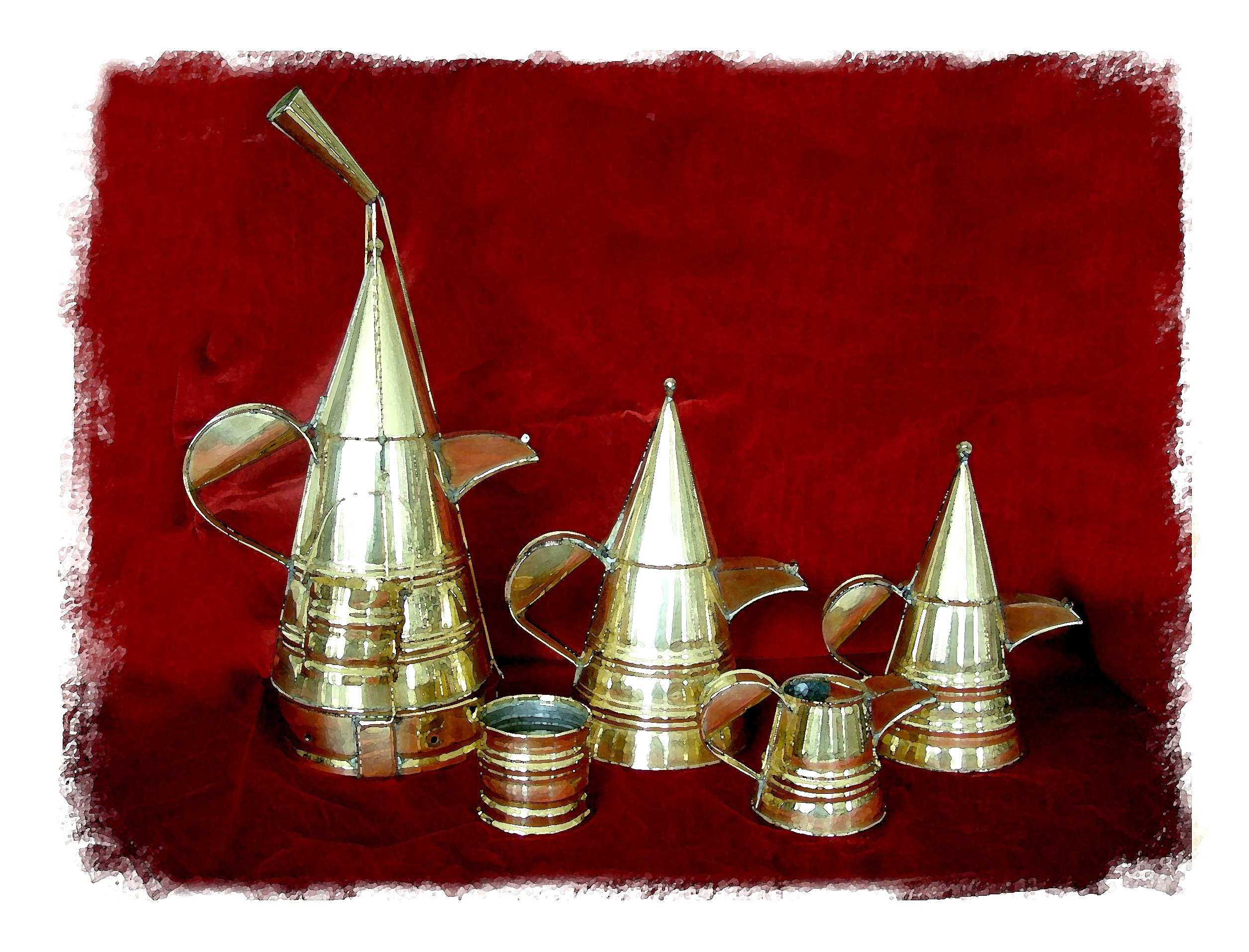 Collections form almost by themselves. The impetus to bring together objects under the same rubric is almost stronger than conscious decision. I have always been a nomad at heart and have been drawn to those whose lives are governed by moving from one place to another. At University my subject was pastoralism. Translated into a collection, the object became the shoe.
Collections form almost by themselves. The impetus to bring together objects under the same rubric is almost stronger than conscious decision. I have always been a nomad at heart and have been drawn to those whose lives are governed by moving from one place to another. At University my subject was pastoralism. Translated into a collection, the object became the shoe.
 These brass coffee pots belong to the Swahili coast East Africa. One of the most fascinating cultures, a mixture of the Omani and the African worlds, the Swahili of Kenya and Tanzania are fervently religious and personally affectionate. What has occurred in Lamu in recent months is an atrocity that has been visited on this beautiful region from a dark outside force.
These brass coffee pots belong to the Swahili coast East Africa. One of the most fascinating cultures, a mixture of the Omani and the African worlds, the Swahili of Kenya and Tanzania are fervently religious and personally affectionate. What has occurred in Lamu in recent months is an atrocity that has been visited on this beautiful region from a dark outside force.